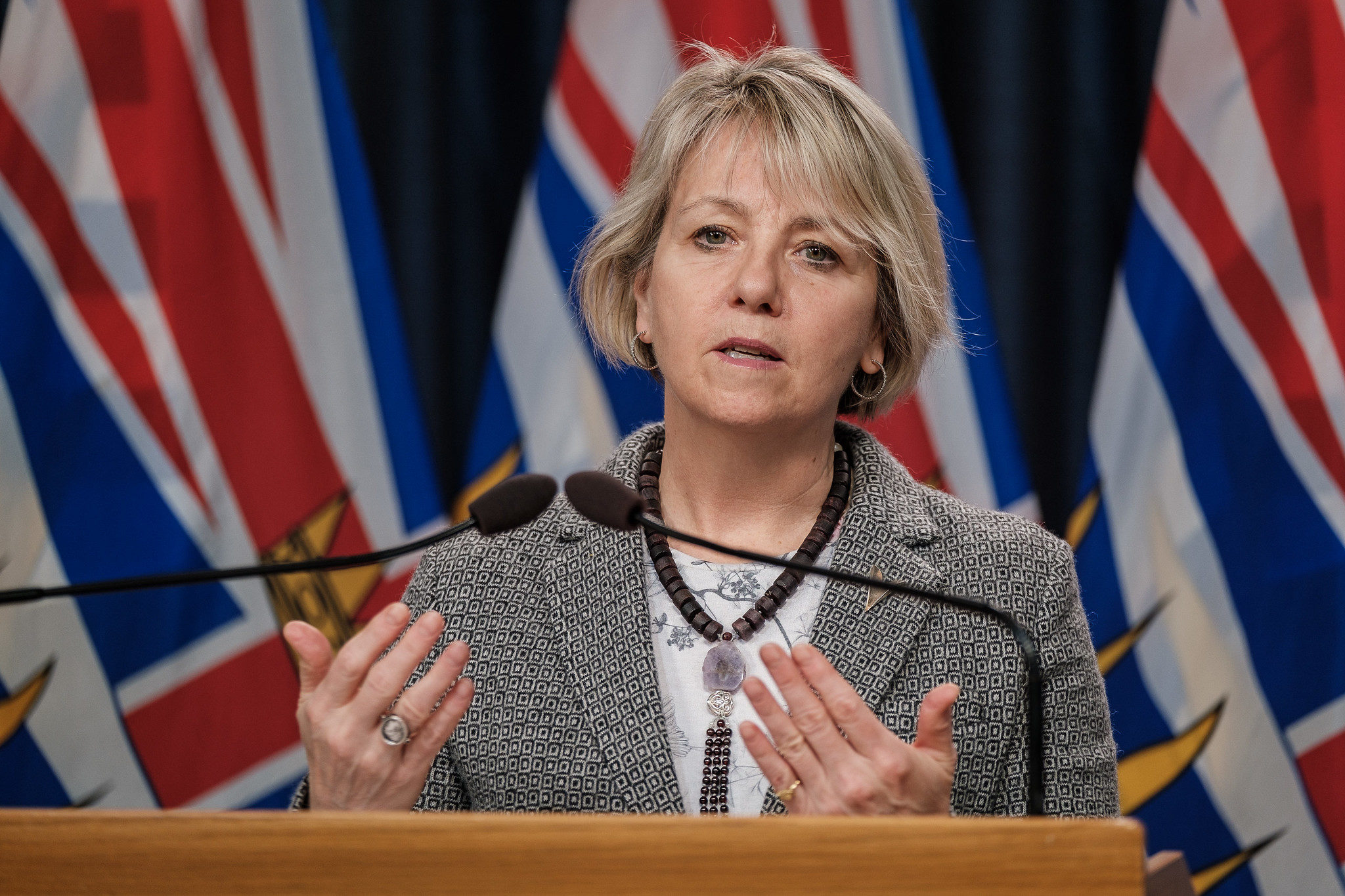Black Press Media employees question keeping workers in offices as second wave hits B.C.
Employees at Western Canada’s largest private newspaper publisher are raising concerns about being forced to stay in the office as COVID-19 cases climb across British Columbia.
Black Press Media employees said they were told to return to work at their physical offices in May, two months after being sent to work from home at the onset of the pandemic.
During the province’s Nov. 7 COVID-19 update, B.C provincial health officer Dr. Bonnie Henry recommended employers “consider going back to actively supporting people working from home in certain businesses, if possible.”
But Black Press, which owns dozens of community newspapers across B.C., is so far refusing to do so, leaving employees feeling that the company should follow Henry’s recommendations and offer a work from home option. Some expressed dismay about the company’s lack of communication around when that offer may be back on the table.
“What is their tipping point? What’s the line that needs to be crossed before they decide to send us home?” said one Black Press worker. “Is it a number or is it even waiting for Dr. Bonnie Henry to put down an order or lockdown measures?
“What more do they need other than telling companies to send their employees to work from home if they can? She’s already said that. And there’s still nothing.”
J-Source spoke to eight employees across the chain under condition of anonymity who said they want at least to have the option to work from home.
“We’re reporting on public health officials, trying to get good information out there and get people to take it seriously. And we’re not really,” said a reporter. “The company has done some things around cleaning and safety protocols in offices, but it just seems like they don’t seem to take this particular part very seriously.”
As B.C. sees a surge in COVID-19 cases, largely in the Fraser Valley region where multiple Black Press newsrooms are located, some employees believe that the ‘work from home’ option should be restored.
Another Black Press reporter agreed that their employer’s position about when workers may be sent home is unclear. They said they expected to be given more notice or a plan of what going home again would look like, and at what stage management would allow remote work again.
A B.C.-based Black Press reporter who has worked with multiple newspaper companies said the lack of clear and consistent communication from management shows their “lack of leadership and a lack of trust in staff and local management.”
They also believe that there is a “bit of a disconnect” between the way the company is handling its own newsrooms and what its reporters are conveying about public health guidelines.
A request for comment sent to Andrew Holota, Black Press editorial director for B.C., was not returned by time of publication.
According to Jennifer Moreau, secretary-treasurer of Unifor Local 2000, as of August 2020 there are 50 union members working for Black Press in the Lower Mainland. Moreau said that the union has reached out to Black Press Media to ask them to consider offering flexibility for workers who want to work from home, but said that they’re “not allowing that at this time.”
Moreau said that she has seen multiple approaches to work-from-home policies from employers of Local 2000 members. The union represents more than 700 media workers throughout B.C in the newspaper and printing industries, including employees from Pacific Newspaper Group and Glacier Media.
She said that one membership group has been working from home since the start of the pandemic. However, work from home policies, said Moreau, are up to the employer’s discretion.
“As far as journalism goes, different employers have different approaches. The key thing for us as a union is just to make sure whatever they’re doing is complying with the provincial health orders and with WorkSafe BC guidelines,” said Moreau.
“My role as a union rep is to make sure that they’re following the rules and if they’re not, we would raise that with them, possibly file a grievance or report it to the relevant authorities.”
Moreau said as long as employers are following the rules, they can have people working in the office.
However, given Black Press Media employees’ concerns, she said she doesn’t understand why it’s not possible to allow workers to work from home.
“We don’t have the power as a union to force them to allow people to work from home as long as they’re following all those guidelines, but why not be flexible?” said Moreau.
“Again, our main ask as a union is employers take into account the extraordinary circumstances we’re in, work with the union and employees to find solutions that work for everyone.”
As of Nov. 19, daily cases in November ranged from 184 to 487 a day in the Fraser Health region. The neighboring Vancouver Coastal health region has seen cases ranging between 59 to 210 a day in the same period.
Fraser Health is the most populous health region in B.C, covering 1.8 million people. Vancouver Health serves 1.25 million residents.
The province also announced new restrictions on Nov. 7 for the Fraser Health and Vancouver Coastal Health regions, excluding Hope, the Central Coast and Bella Coola Valley.
The restrictions, which were initially put in place until Nov. 23 and have now been extended until Dec. 7, include a ban on indoor group physical activities, socializing with members outside of one’s immediate household and non-essential travel in and out of these two health regions.
On March 25, Black Press announced temporary layoffs impacting workers across the company. Multiple publications reduced the number of weekly print editions.
One Black Press reporter said that even in March, they felt that management was hesitant about letting employees work remotely. While they don’t feel that their health is particularly at risk now, they do think “on principle” they shouldn’t be in the newsroom at all.
“It’s certainly unsafe if we go by the provincial mandate that we should be working from home, if we can,” they said. “I think on that alone, you should play it safe and be like, ‘You guys can work from home, you did it for three months, it worked fine.’ They should have continued with it.”
Another Black Press journalist said they were initially nervous to return to work in person. They said that while they felt comfortable when COVID-19 cases were lower, now that cases in British Columbia have risen, “it’s hard to say.”
“I still feel the workspace is relatively safe and my co-workers are taking distancing and masks seriously,” they said. “I don’t know how I’ll feel if the numbers keep climbing. Any shared indoor space carries at least a small amount of risk if someone is COVID positive.”
Multiple employees said that when they were allowed to work from home in March, there was no drop in productivity. The reporter said that their team had been working well from home, and had their computers set up for remote work with the proper tools and technology.
One Black Press reporter based in the Lower Mainland said that the company created a spreadsheet at the beginning of the pandemic to track what work reporters at their newsroom completed. They said that reporters would have to fill in what they completed every day and what they were working on.
The reporter said that they are still using that spreadsheet now, and doesn’t understand why they can’t work from home if they are already monitoring how much work they’re completing.
“It’s almost like they don’t trust our editors to make sure that we’re getting a proper amount of work done,” they said. “It’s an open doc. You can see how much work other people are getting done too. Honestly, that’s the part that bugs me the most, it just seems like they don’t trust us to do the work.”
Another Black Press reporter said that they feel that their employer is a bit “old school” and not as “progressive” as other companies are.
“They feel that having their employees in the office is the more productive way to go, whereas I don’t share that view. This is a different world now, employers need to evolve a little bit and trust their employees,” they said.
They said they hope that Black Press gives employees the choice to be able to work from home in general.
“I think they do have allowance for it,” they said. “If an employee feels unsafe, we should be allowed to go home.”
Moreau said that what the union can do is to ask the employer for their rationale about why they don’t want people to work from home. If this remains a big concern for their members, she said, it may become a bargaining issue.
“The contract for this group of workers expires at the end of December, so we will be bargaining likely soon with this employer,” said Moreau. “If enough union members indicate that working from home is a priority for them, then it may become a bargaining issue, but we haven’t had those discussions yet.”



